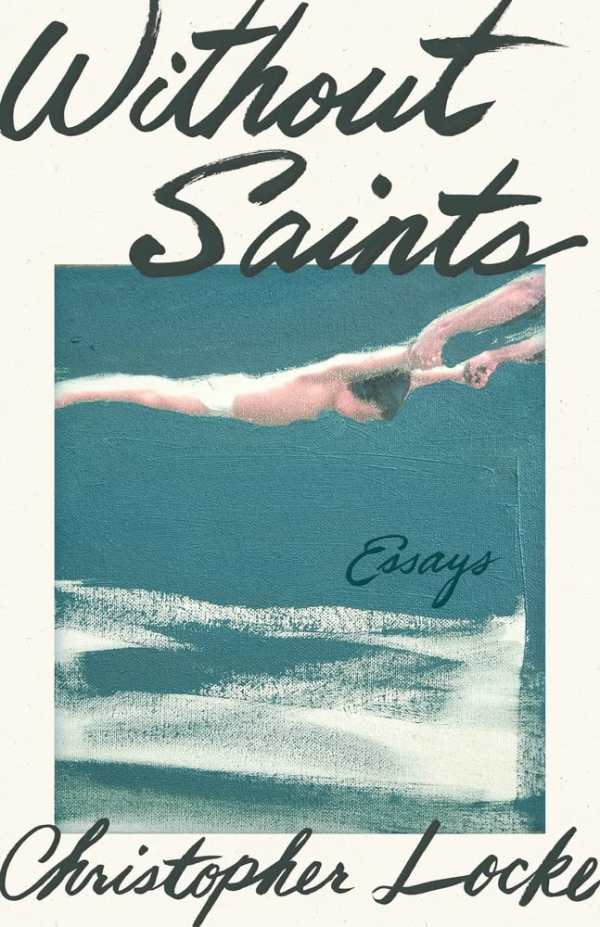Without Saints
In his visionary memoir-in-essays Without Saints, Christopher Locke freezes the past, covering enforced religiosity, self-destructive habits, his marriage and fatherhood, and teaching.
In a framework that mimics the nature of memory, these flash essays present shards of a life story. Growing up in New Hampshire, Locke encountered abusive schoolteachers and Pentecostal church elders who attributed his stuttering to demonic possession. By sixteen, his small acts of rebellion had ceded to self-harm and addictions that persisted into adulthood. Later, teaching poetry to prisoners, he realized that he might have been in their situation had he been caught with drugs.
In “Unforgivable,” adolescent hijinks reveal the new family dynamic after Locke’s parents’ divorce. With profits skimmed off the top of their summer job, he and his brother treated their father to a meal. Their poor, careworn mother was affronted. It was thus resentment, as well as a sense of justice, that motivated her insistence that the boys return the stolen money. Locke also observes weak bodies and wills—when his father has the fire chief scare him out of his arson habit; while he’s caught in thought on the operating table.
The complexity of the essays advances alongside their chronology. The opener, “Pieces,” is a fragmentary record of Locke’s mother’s early years, whereas “The Night Faerie,” about giving up prescription pain pills when his daughter was hospitalized for a dog bite, and “Fleeting,” on his friendship with the late writer Donald Hall, have satisfying circular structures. Locke’s naïve childhood perspective contrasts with his jaded speech in adulthood, when he knows the temptation of relapsing. But Locke’s belief in the power of poetry to fix instants in time and to build intimacy between strangers is another binding theme.
Cognizant of human fragility, the hard-hitting autobiographical essays of Without Saints crystallize a man’s struggles and victories.
Reviewed by
Rebecca Foster
Disclosure: This article is not an endorsement, but a review. The publisher of this book provided free copies of the book to have their book reviewed by a professional reviewer. No fee was paid by the publisher for this review. Foreword Reviews only recommends books that we love. Foreword Magazine, Inc. is disclosing this in accordance with the Federal Trade Commission’s 16 CFR, Part 255.

